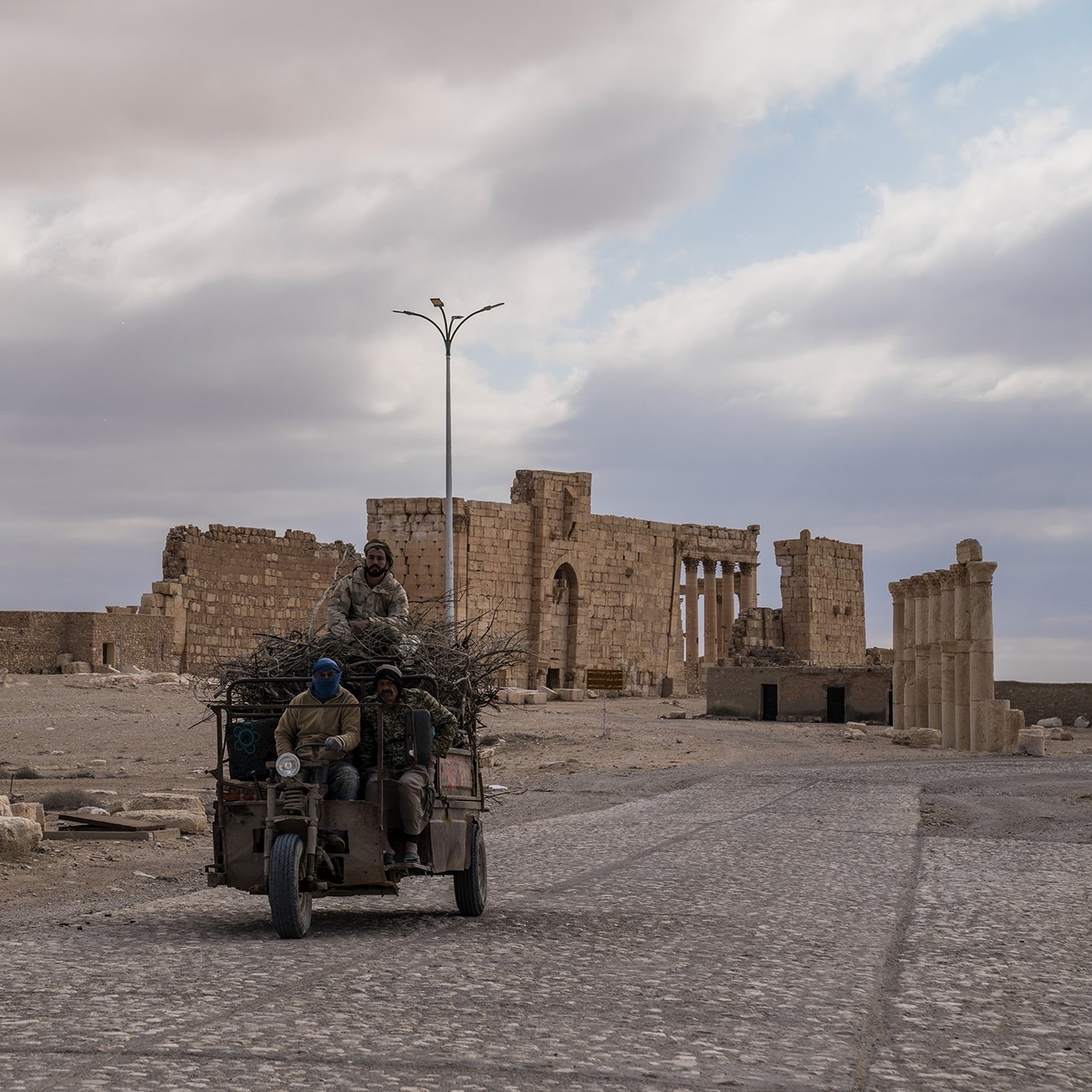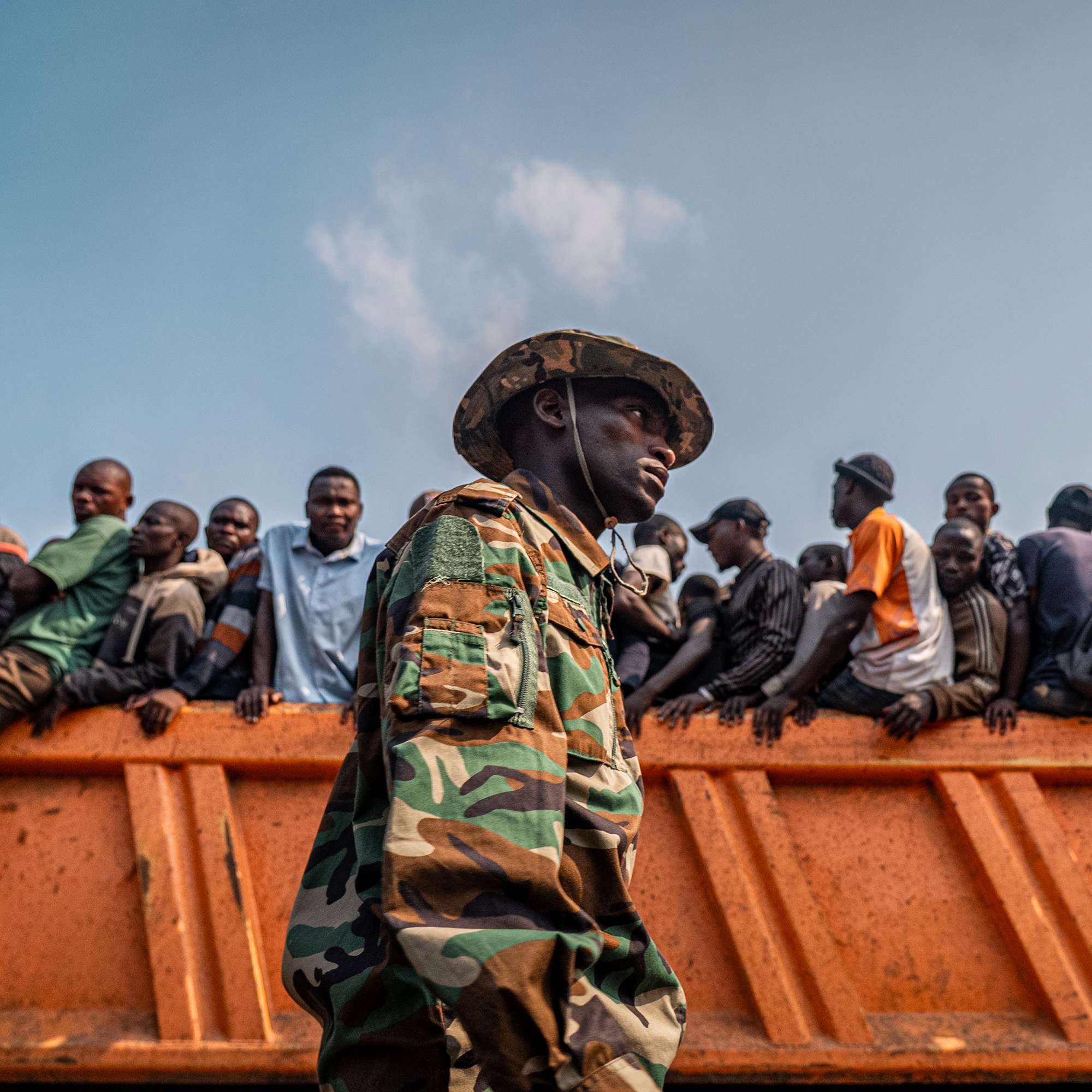The Messiness of Foreign Aid
APRIL 10, 2025
The Reporter’s Notebook is our monthly interview series with Dial contributors. To receive these conversations directly in your inbox, sign up for our newsletter.
✺
A conversation with Mara Kardas-Nelson, who wrote about the boom-and-bust cycle of foreign aid in Sierra Leone for our Promises issue.
✺
PHOTO: JESS ALVARENGA
In Sierra Leone, the recent USAID stop-work order has resulted in the closure of clinics, staff retrenchments and the suspension of essential services such as HIV testing, treatment and care. This latest ebb in foreign funding fits into a broader pattern that Sierra Leone, and other countries, have grappled with for decades, Mara Kardas-Nelson reports. Foreign donors and organizations “are compelled to act during a major crisis — the aftermath of war, the world’s largest Ebola outbreak — and then shrink their commitments as the crisis wanes. That makes long-term policy planning nearly impossible and limits progress in rebuilding the country,” Kardas-Nelson, a former aid-worker, writes.
THE DIAL: As you describe in the piece, you worked in Sierra Leone with a major NGO between 2015 and 2018. What made you want to revisit that experience now?
MARA KARDAS-NELSON: I stopped working for that NGO in 2018, but I’ve continued to report from Sierra Leone in the years since. My book, We Are Not Able to Live in the Sky, which came out last year, looks at how international development policy largely created in the U.S. impacts people’s lives in places like Sierra Leone. There have been so many major humanitarian disasters in the country, and it’s a very impoverished place, so international aid has been crucial to government budgets and basic service delivery. I’ve just always been really fascinated by this dynamic.
A conversation I had with a director in the health ministry when I was working for the NGO always stayed with me. It was brief, maybe 15 minutes at most, and happened a decade ago, but I think about it a lot. He explained what happens when policy and programs created elsewhere are applied in a country, whether that’s Sierra Leone or elsewhere, without much knowledge of the local environment. Often these programs come from good intentions — like the idea that everyone has a right to universal primary healthcare — but in reality they aren’t easily implemented and require a continued negotiation with, and reliance on, foreign aid, foreign donors and NGOs.
I was reminded of that conversation again when Elon Musk started taking a “chainsaw” to USAID. I thought, here’s this thing yet again happening thousands of miles away, led by someone who has no background in international aid, let alone the intricacies of health policy in a place like Sierra Leone, but it’s going to have a huge impact locally. I don't want to downplay the Trump administration’s cuts, but most people probably don’t know that it’s in some ways an exaggerated version of an existing boom-and-bust cycle that Sierra Leone has been dealing with for decades. I wanted to write about that.
THE DIAL: In the piece, you talk about your frustration with that health ministry director and his skepticism of ambitious targets set by foreign NGOs and institutions. You initially thought he and other staffers were unambitious, even accepting of the status quo, but you write that you later came to understand his point of view. Can you talk a little bit more about your shift in perspective?
MKN: When I moved to Sierra Leone in 2015, it was the end of the Ebola outbreak. There was a feeling that the country was coming out of a massive crisis and that global institutions had a responsibility to help rebuild the country, strengthen its healthcare system, and make sure an outbreak like this could never happen again. There was real optimism that we could prevent another disaster. So, when I encountered resistance from people like this director, who initially refused to meet me, I was confused. I thought, we have this opportunity, let’s capture it.
But the conversation with him opened my eyes to the fact that it was not the first time global donors had come in with promises of “never again.” The director knew that eventually NGOs and donors would lose interest and would either leave or drastically reduce their budgets.
I’ve now been reporting on the country long enough to have seen ebbs and flows in foreign aid myself, and to know that rebuilding institutions takes time, especially a decimated health care system.
THE DIAL: You describe in the piece that foreign aid typically pours into Sierra Leone after a crisis and then dissipates. Why does so much foreign aid only focus on short term goals, and what is the impact of this kind of boom-and-bust cycle?
MKN: In a way, these big promises are a natural human response. We see someone in crisis, and we want to help them. That’s why there was such a massive investment in vaccine development during COVID, for example. It’s also much easier to fundraise during times of crisis because people respond to a sense of urgency.
Ultimately, this type of short-term funding is propelled by political systems. In the U.S., we have elections every four years and foreign aid budgets that span anywhere from around one to 10 years. Those are short periods of time when you’re talking about rebuilding a healthcare system or even building roads and infrastructure. Even major multilateral global funders and institutions like the Red Cross and Doctors Without Borders have short budget periods because they are set up to respond to crises. When I was working in the sector, I remember that a three-year budget felt like a luxury, but three years is not enough time to really get anything done.
The Community Health Worker (CHW) program in Sierra Leone, the one I mention in my piece, has had to be revised twice already since I began working with it in 2015, and may change again depending on what happens with the money they receive through USAID. This program already has to reapply for more funding every year, and the conditions attached to that funding often change depending on the donor. Some donors will say they’re no longer interested in funding maternal health anymore, or that they want to focus on HIV. That makes long-term planning very difficult.
THE DIAL: The Trump administration’s decision to cut USAID funding has deprived the country of essential funding and created more uncertainty for the CHW program and other initiatives. Do you have a sense of the ramifications for the country more broadly?
MKN: From speaking to friends who work in the sector in Sierra Leone, it seems the impact is significant. Many organizations have put in place hiring freezes. People are losing their jobs. Everyone’s pretty freaked out about it. Sierra Leone is one of the poorest countries in the world, so these job losses will have significant impact on the economy.
The news that the U.S. will stop funding GAVI, which provides vaccines to countries like Sierra Leone, was also a blow. Since GAVI gets funding from several different countries, it’s still unclear how bad things will be. It’s hugely chaotic and there’s a lot of uncertainty. I know some clinics have already had to close.
THE DIAL: You reported this piece while in the U.S., based on your extensive experience in the country. What did you draw on to recall your initial experiences of Sierra Leone, and how did you make sure that the piece accurately reflects the current mood among aid workers and officials?
MKN: I went back to notes I had taken when I was working on the CHW program, specifically about which international and U.S. organizations the Ministry of Health was approaching for funding and what sort of confines they gave about their grants. I also relied on documents from the “post-Ebola recovery period,” 2015 to 2018, which are now available online, including what Sierra Leone’s government wanted to focus on, how much it would cost and who was paying for what. I also spoke with a lot of people over WhatsApp. I didn’t set out to write an authoritative piece on what it’s like in Sierra Leone right now. Rather, I wanted to write an essay with a more historical perspective that includes my own personal reflections as someone who worked foreign aid and now feels some responsibility for the messiness of it.
MARA KARDAS-NELSON is an independent journalist focusing on international development, health policy, the environment and inequality. Her first book, We Are Not Able to Live in the Sky, published in 2024, was shortlisted for the J. Anthony Lukas Book Award.
DEVIN CALIBOSO is an aspiring Filipino-American writer. He grew up in Southern California, but is now an English-major undergraduate at UC Berkeley. Go Bears!




